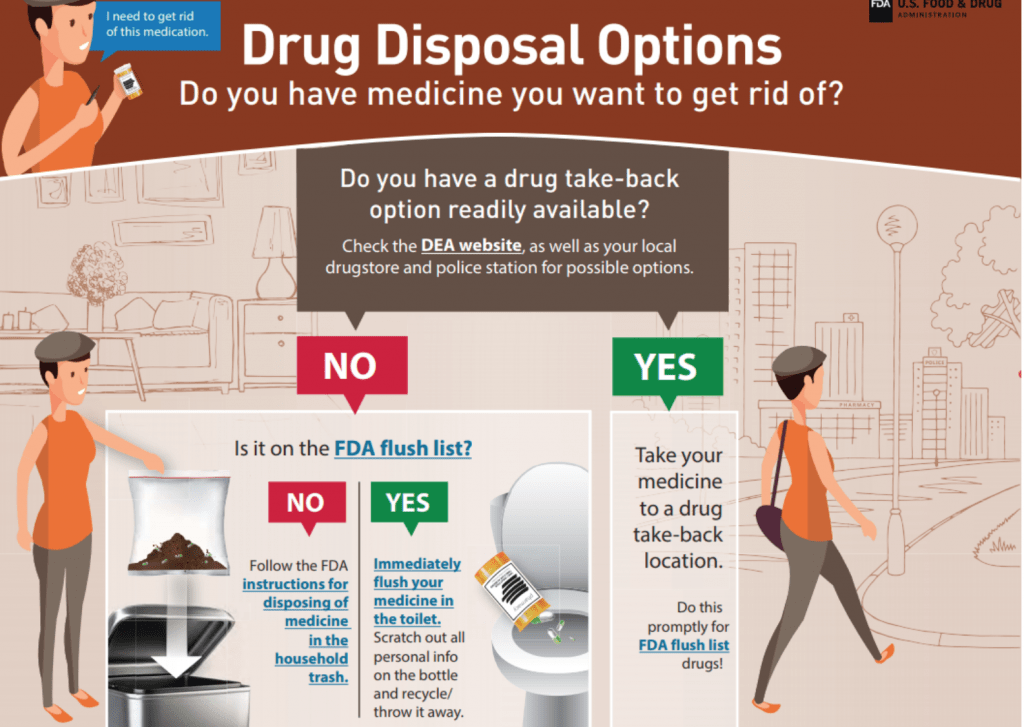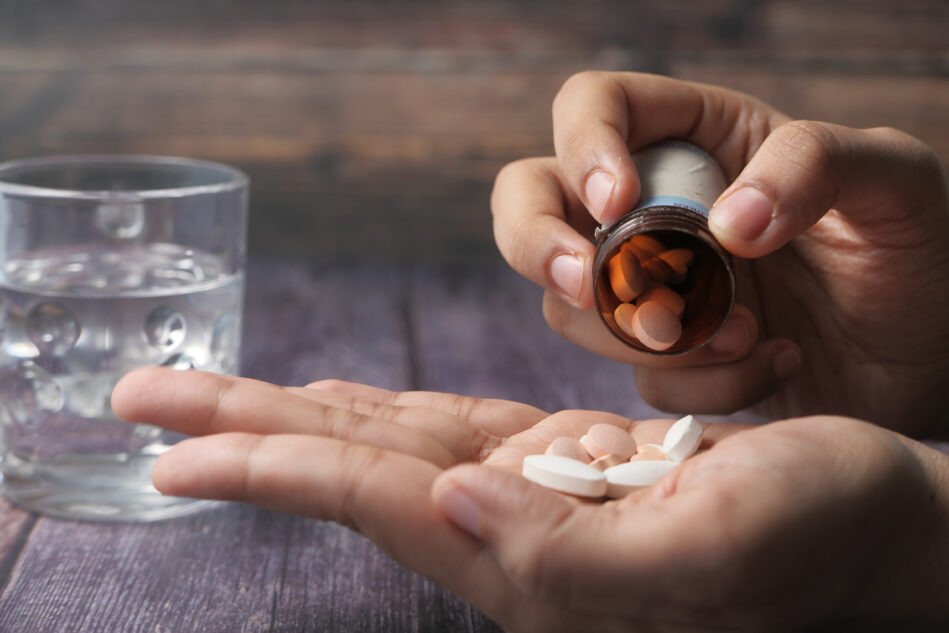Prescription drugs can be harmful, if used by people in your home who should not be taking them or if disposed of improperly. Here’s how the Centers for Disease Control (CDC) and the US Food and Drug Administration (FDA) recommend handling the prescription drugs you use, as well as unused medicines that you no longer need.
Medicines you use: You want to make sure that you keep the prescription drugs you take in a safe place. If there are children or grandchildren around, especially, you want to ensure that pill bottles are closed and put away out of reach. Every year, tens of thousands of children end up in the emergency room because they took medicines that were mistakenly not put away.
Medicines you do not use: Unused and expired medicines need special attention as well. It’s best not to let them sit in the medicine cabinet. But, you should not assume you can throw them in the garbage or flush them down the toilet. They could then end up in the water supply. As it is, some chemicals are in our water supply and they may be causing harm to the environment. We want to keep our water supply as clean as possible.

The FDA and CDC both recommend bringing your medicines to National Prescription Drug Take-Back Day on October 26, 2019. You can dispose of them at a Take-Back site. In April, the most recent take-back day, people brought in 937,443 pounds (468.72 tons) of unused or expired prescription medication.
You may also be able to bring unused medicines to your pharmacy for disposal. Ask your pharmacist.
If you can’t turn your prescription drugs in, check the FDA flush list. Some medicines are OK to flush down the toilet, including oxycodone, fentanyl, morphine and diazepam. The FDA recommends flushing them down the toilet if you can’t bring them to an appropriate take-back site because they otherwise can pose a serious hazard to others in your home.
If you cannot take the drugs to an appropriate site and the drugs should not be flushed down the toilet because they can seriously contaminate the water supply in your community, the FDA recommends mixing the medicines with something unappealing such as dirt, cat litter or dirty water; then, place the mixture in a sealed container and put it in the trash. You should remove any personal information from the pill bottles.
This article was republished with permission from Just Care.






